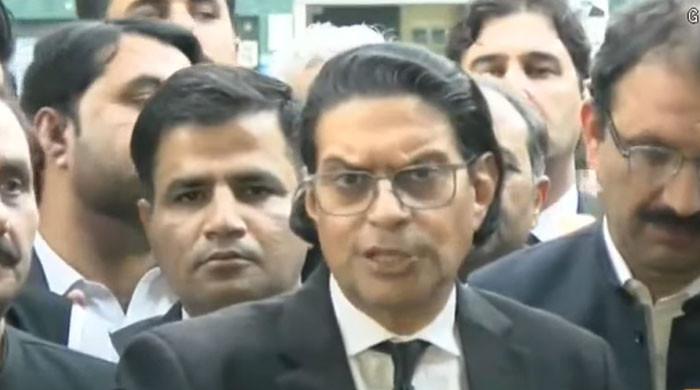
Urgent Call for Oath Administration: PTI's Stance on KP CM-Elect
In a significant political development in Pakistan, the Pakistan Tehreek-e-Insaf (PTI) party has raised alarms regarding the delay in administering the oath to the Chief Minister-elect of Khyber Pakhtunkhwa (KP). PTI's Secretary General, Salman Akram Raja, addressed the media in front of the Peshawar High Court on October 13, 2025, emphasizing the urgency of the situation and calling for immediate action.
Background: The Political Landscape in Khyber Pakhtunkhwa
Khyber Pakhtunkhwa, one of Pakistan's four provinces, has been a stronghold for PTI, particularly since the party's rise to prominence in the 2013 general elections. The recent elections have once again positioned PTI at the forefront, with a new Chief Minister-elect poised to take charge. However, the delay in the oath-taking ceremony has raised questions and concerns among party members and the public alike.
The Urgency of the Oath
Salman Akram Raja's remarks underscore the importance of the CM-elect's oath as a crucial step in the democratic process. The oath serves not just as a formality but as a foundational element that enables the newly elected official to assume their responsibilities and begin addressing the pressing issues facing the province. Raja expressed his belief that any delay in this process could hinder the effective governance of KP at a time when the province is in dire need of leadership.
Key Issues Facing Khyber Pakhtunkhwa
The province of Khyber Pakhtunkhwa is grappling with several challenges, including economic instability, security concerns, and infrastructural deficits. With the CM-elect awaiting the oath, urgent matters such as healthcare, education, and public safety remain in limbo, further exacerbating the difficulties faced by the citizens of KP.
PTI's Position and Future Actions
As the leading political party in KP, PTI is adamant about the necessity of a swift oath administration. Raja's comments indicate that PTI is prepared to take further steps if the situation does not resolve promptly. The party's strategy may involve mobilizing public support to expedite the process, showcasing the urgency of having an elected leader in place to tackle the province's myriad challenges.
The Role of the Judiciary and Administrative Bodies
The Peshawar High Court's involvement in the situation reflects the judiciary's significant role in the political landscape of Pakistan. Legal frameworks dictate the procedures for oath administration, and any delays can often lead to political turmoil. Raja's appearance outside the court highlights the intersection of law and politics in Pakistan, emphasizing the need for timely actions from administrative bodies to uphold democratic principles.
Conclusion: A Call to Action for Khyber Pakhtunkhwa
The call from PTI for the immediate administration of the oath to the Chief Minister-elect is not merely a political maneuver but a reflection of the urgent needs of the people of Khyber Pakhtunkhwa. As the province stands at a crossroads, the hope is that the relevant authorities will act swiftly, allowing the newly elected leadership to step into their roles and begin the critical work needed to address the pressing issues facing the region.
Frequently Asked Questions (FAQs)
Q1: Why is the oath of the Chief Minister-elect important?
A1: The oath is a constitutional requirement that allows the elected Chief Minister to officially assume office and begin executing their duties, which are crucial for governance and public welfare.
Q2: What challenges is Khyber Pakhtunkhwa currently facing?
A2: Khyber Pakhtunkhwa is facing various challenges, including economic instability, security issues, and deficiencies in infrastructure and public services.
Q3: What actions is PTI planning to take regarding the oath delay?
A3: PTI intends to mobilize public support and possibly take further legal or political steps to ensure the swift administration of the oath to the Chief Minister-elect.
Q4: How does the judiciary influence political processes in Pakistan?
A4: The judiciary in Pakistan plays a critical role in ensuring that legal frameworks are followed, particularly in matters related to governance, election processes, and the administration of oaths.
Q5: What is the significance of the Peshawar High Court in this matter?
A5: The Peshawar High Court's involvement underscores the legal processes governing oath administration and highlights the judiciary's role in maintaining democratic order in the province.
Tags
National
